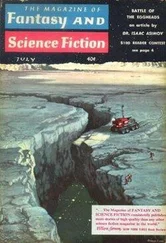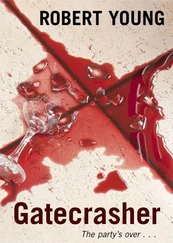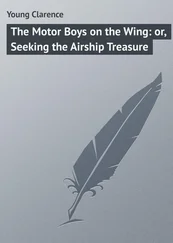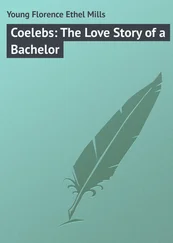Robert Young - The Leaf
Здесь есть возможность читать онлайн «Robert Young - The Leaf» весь текст электронной книги совершенно бесплатно (целиком полную версию без сокращений). В некоторых случаях можно слушать аудио, скачать через торрент в формате fb2 и присутствует краткое содержание. Год выпуска: 1958, Издательство: Royal Publications, Inc., Жанр: Фантастика и фэнтези, на английском языке. Описание произведения, (предисловие) а так же отзывы посетителей доступны на портале библиотеки ЛибКат.
- Название:The Leaf
- Автор:
- Издательство:Royal Publications, Inc.
- Жанр:
- Год:1958
- ISBN:нет данных
- Рейтинг книги:4 / 5. Голосов: 1
-
Избранное:Добавить в избранное
- Отзывы:
-
Ваша оценка:
- 80
- 1
- 2
- 3
- 4
- 5
The Leaf: краткое содержание, описание и аннотация
Предлагаем к чтению аннотацию, описание, краткое содержание или предисловие (зависит от того, что написал сам автор книги «The Leaf»). Если вы не нашли необходимую информацию о книге — напишите в комментариях, мы постараемся отыскать её.
The Leaf — читать онлайн бесплатно полную книгу (весь текст) целиком
Ниже представлен текст книги, разбитый по страницам. Система сохранения места последней прочитанной страницы, позволяет с удобством читать онлайн бесплатно книгу «The Leaf», без необходимости каждый раз заново искать на чём Вы остановились. Поставьте закладку, и сможете в любой момент перейти на страницу, на которой закончили чтение.
Интервал:
Закладка:
The Leaf
by Robert F. Young
He could remember the afternoon as if it were yesterday. It wasn’t, of course— actually it had been several years back. It had been around the middle of autumn, about the time when the last incarnadine leaves were making their fluttering journeys earthward. He had taken his .22 and gone into the woods where the hickory trees were, and he had settled himself comfortably against the shaggy trunk of one of the hickories, the .22 balanced across his sprawled knees. Then he had waited.
The first red squirrel had come out on one of the high limbs and posed there. That was the word all right—posed. It had sat there on its haunches with utter immobility almost as if it had been painted on canvas against a background of leafless naked branches and milk-blue sky.
He had raised the .22 lazily and sighted along the slender barrel. There was no hurry. There was all the time in the world. He didn’t squeeze the trigger until he had a perfect right-between-the-eyes bead, then he squeezed it ever so lightly. There was the sharp sound of the report, and then the small body falling swiftly, bouncing and glancing off limbs, tumbling over and over, making a rustling thump in the dry leaves at the tree’s base.
He hadn’t even bothered to go over and examine it. He knew he’d got it right where he’d aimed. They didn’t die instantly like that unless you got them in a vital spot. They thrashed and kicked around after they hit the ground and sometimes you had to waste another shell on them if the noise bothered you. Of course if the noise didn’t bother you, you could save the shell for the next one, but it was better in the long run to get them right between the eyes because that way the others wouldn’t be frightened away by the thrashing sound, and you didn’t have to get up.
That had been the first one.
The second one had been coming down the trunk of the same tree, spiraling the trunk, the way squirrels do, stopping at frequent intervals and studying their surroundings with their bright beebees of eyes, looking right at you sometimes but never seeing you unless you moved. This one had stopped, head down, and was looking off to one side when he got it. The force of the bullet, striking just below the ear, where he’d aimed, tore the small red body right off the trunk, spun it around several times, and dropped it into a wild blackberry thicket.
He hadn’t bothered to look at that one either. He had lit a cigarette and leaned back more comfortably against the hickory. It was a pleasant afternoon, mild for November—a time for wandering in woods, a time to take it a little easy, a time to knock off some of the scavengers and pests you’d neglected during the first days of pheasant and rabbit season, a time to get your eyes down to hair-line fineness for the first ecstatic day of deer. Red squirrels were easy, of course, a little beneath the dignity of a true hunter, but when you tried to bore them in vital spots you got some pretty good practice out of it.
He yawned. Then, out of the corner of his eye, he caught a red wisp of movement high in the tree to his right. He brought the .22 over casually. He hardly needed to turn his body at all. The stock fitted his shoulder snugly, lay cool against his cheek. There was no recoil, only the sharp ripping sound, and then the dark red body falling, hitting limbs, caroming, dropping, dropping, making the familiar thrilling rustling sound in the dead leaves.
That had been the third.
The fourth and the fifth had been about the same.
After the fifth, he had become a little bored. He decided to vary the game a little. He drew his knees together and rested the barrel of the .22 in the niche between them, then sat there quietly for a long time.
Presently the sixth squirrel left the security of the trees and made a few quick jumps into the small clearing. Then it stopped and stood poised, a statuette except for its alive bright eyes. It was a perfect target, but he was in no hurry. He was enjoying himself immensely.

Illustrated by Richard Kluga
After about half a minute the squirrel moved again—several yards closer, almost in an exact line with the dark little eye of the .22. It sat up on its haunches then, its tail an arched question mark behind it. It put its tiny forepaws together and sat there not moving, almost as though it were praying. (That was the part he remembered most vividly.)
He’d hardly needed to move the .22 at all. The slightest shift had aligned the sights with the imaginary mark between the little eyes. He had squeezed the trigger nonchalantly, and the part of the head just above the eyes had come right off and the small red body had completed a perfect somersault before dropping into the dead leaves of the clearing.
After that he hadn’t bothered with the trees. It was so much more fun in the clearing, waiting for them to come right up to you and pose. Of course it wasn’t such good practice, but it was fine entertainment—an ideal way to spend a lazy afternoon in fall when the wood was all cut for winter, the crops in, the barn roof repaired and Pa off to town where he couldn’t be finding annoying little things for you to do.
He had got eleven of them altogether, he hadn’t missed a one, and he had felt pretty proud taking them home to show to Ma before feeding them to the dogs.
He shifted his cramped legs and peered down through the interstices of the foliage at the gray shape of the hunter. Some of his initial terror had left him when he’d finally realized that they couldn’t see through leaves any more than he could; that They, as well as he, needed an open target in order to make a kill.
So he was relatively safe in the tree—for a while, at least. Perhaps he could find safety in trees for the rest of his life. Trees might be the answer.
He felt a little better. A portion of the fear that had followed the meteor shower was still with him, however. The fear that had detonated in his mind the morning after the shower when Pa had come running to the barn, shouting: “The cities! All the cities have been blowed up! They ain’t no more cities in the whole world. Radio just said so ’fore it went dead. We’re bein’ invaded!”
Invaded? Invaded by whom? He hadn’t been able to grasp it at first. At first he’d thought Russia, and then he’d thought, no, it couldn’t be Russia. Pa had said all the cities. All the cities in the whole wide world.
And then he’d begun to see the people on the road. The terrified people, the walking, running, stumbling people heading for the hills—the hills and the forests, the hiding places that ships couldn’t see, that bombs couldn’t find.
But that hunters could.
Hunters hunting with incredible silver guns, skimming along the roads to the hills and the forests in fantastic vehicles, alighting by roadsides and lumbering across fields to timber stands; routing out the people from elms and oaks and maples and locusts and even sumac, flushing them out like rabbits and shooting them down in cold blood with blinding shards of bullets.
He had run when he’d seen the first vehicle. He’d run wildly for the woods. He’d forgotten Pa and Ma. He’d even forgotten his gun. He’d been scared. Crazy-scared.
What did They want to kill people for? What was wrong with people?
He shivered on the limb, in the chill morning wind that had sprung up after the first frost of the season. Martians, he’d bet. Martians landing on Earth and wanting everything for Themselves, afraid to let people live for fear they’d get some. Greedy Martians, trying to hog the whole world!
Читать дальшеИнтервал:
Закладка:
Похожие книги на «The Leaf»
Представляем Вашему вниманию похожие книги на «The Leaf» списком для выбора. Мы отобрали схожую по названию и смыслу литературу в надежде предоставить читателям больше вариантов отыскать новые, интересные, ещё непрочитанные произведения.
Обсуждение, отзывы о книге «The Leaf» и просто собственные мнения читателей. Оставьте ваши комментарии, напишите, что Вы думаете о произведении, его смысле или главных героях. Укажите что конкретно понравилось, а что нет, и почему Вы так считаете.











